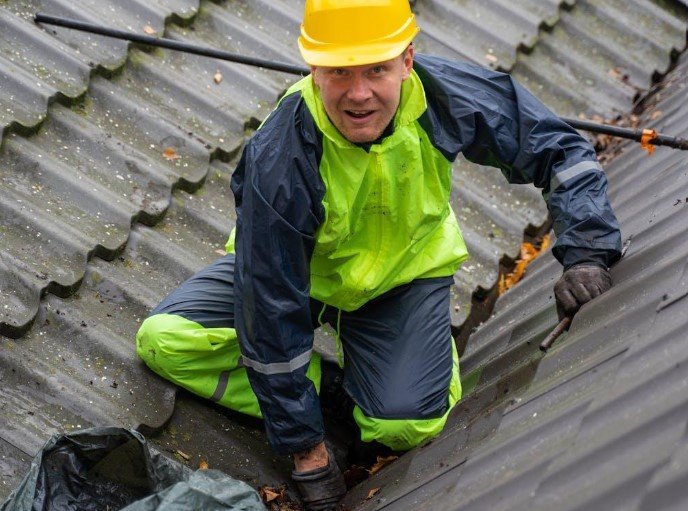9 Ways to Stay Safe on College Campus

Returning to college this fall will be different than it has ever been. With approximately 20 million students expected to join back, schools have ruled out some practical safety tips for helping them stay safe.
In addition to following SOPs on campus or in the community, students should also be vigilant. Due to the high number of students, dormitories, and valuables, even the safest college towns experience criminal activity, including theft, burglary, and assault.
While colleges place a high priority on safety, it’s important to take steps to protect yourself and your belongings. Here are nine tips to help you do that.
1. Learn About The Campus Safety Office
Every college has a security office on campus and students are encouraged to make full advantage of this service. You can usually find information on your college’s website, like office hours and contact methods, and information on online safety resources.
The first thing to check is whether your college offers campus escort services, safety phone stations, or maps indicating safe routes. Then, you contact the campus safety office to inquire how you may use these services. You can also request more details about their safety programs.
2. Be Careful After Dark
Many criminals prefer the shadows to the glaring sunlight. College campuses are no exception. The purpose of this guide is not to scare you and not make you feel unsafe all the time but to encourage you to be careful on campus at night.
Students are advised not to wander off alone when exploring the local area. In addition, you must not go for a walk alone or park in a poorly-lit area. All of these are risky activities, especially at night.
If you absolutely have to go at night, know where you’re going before you leave. Also, a buddy system can help you when you’re walking at night. If you need to travel independently, ask campus security for a ride, especially if you’re under the influence. If you have gone out and will return after sundown, park in a well-lit or heavily-trafficked area. You can use GPS tracking apps that monitor your location and send help when needed.
3. Lock Everything Up
You have probably heard this safety precaution at home because it is so important. Do not leave your apartment or dorm without locking it up, regardless of how soon you plan to return.
In addition, secure everything you own, including your laptop and your mini-refrigerator.
Close your curtains and blinds. There’s no reason to expose your valuables to thieves. No matter which floor you live on, you should always lock your windows.
As an added safety tool, install contact sensors in drawers, closet doors, and mini-fridges, so an alarm will go off when someone touches them.
4. Use Social Media Wisely
Social media gives a peek into your daily life. It is important not to post too many details about yourself on your social media profiles, as this will give scammers, hackers, and potential stalkers an inside glimpse into your life.
Be careful about what you post and when. You can also follow these tips to make your social media profiles more secure.
- Avoid geo-tagging your pictures as it reveals your location to others
- Don’t publicize that you’re leaving your home unattended or are home alone
- Limit privacy on your pictures and posts
- Disable location services
5. Get Into Your Car With Caution
Even if you park in a well-lit public lot, you should take safety precautions. Check the undercarriage and backseat of your car before getting in. There is a chance that a predator may be hiding in these spots. Even if the vehicle is unlocked and you are inside, keep the windows rolled up.
Look out for cars parked nearby to avoid a scary incident. Look around your car from all angles to see if anyone is being shady, hiding, or sitting alone. Be sure not to leave valuables out in plain sight. Either cover the items such as bags, laptop cases, and packages, or place them in your trunk.
If you plan to use ridesharing services, confirm the car’s make, model, color, and the driver’s identification information before hopping on.
6. Plan Ahead
When you go somewhere, plan your route and know how to get there. If you plan ahead, you can avoid danger and enjoy your time.
Here’s what you can do:
- You don’t need to look lost if you’re unfamiliar with a place; just walk with confidence
- When you’re going to a party, make sure you have a plan to get home safely
- Avoid headphones and staring at your phone while walking, especially if you are uncertain of your route
- Find popular routes to your destination by downloading your campus map and GPS
- Take care not to walk along deserted paths. Stick to the routes you are familiar with, no matter how long they take
7. Familiarize Yourself With The Basics Of Self-Defense
Self-defense is the most proactive thing you can do.
Every single individual must know some simple and effective self-defense techniques. With the proper knowledge and practice, you can become proficient in certain skills that could save your life one day.
Learn self-defense to boost your self-esteem and confidence and to protect yourself.
In addition to knowing that you can defend yourself, simply being aware of the surroundings can help, especially if you live alone or spend a lot of time on campus by yourself. Here are some tips:
- Always stay alert to the people, objects, and environments around you
- Be suspicious of anything that makes you feel uneasy as your instincts are usually right
- Keep the boundaries that you set for yourself in mind. If the situation advances past a certain point, you may need to defend yourself
8. Be Aware Of Crime Trends And Rates
Being aware of what’s happening is always a smart move. Looking at local crime rates, you can get a sense of the types of crimes most prevalent in your community and whether crime is going up or down. It is possible to gauge the level of safety in a school, dormitory, or neighborhood based on crime rates and statistics.
In addition, review the security report for your school. An annual report detailing a campus safety protocol, the procedure for handling emergencies, and the latest crime statistics is mandatory for all colleges and universities.
9. Make Sure You Have Safety Supplies On Hand
Having safety supplies on hand can give you peace of mind. While some states do not permit stun guns, you can also keep pepper spray or mace. These are less drastic alternatives, but equally useful. Colleges often give new students whistles to use if they get into trouble or need help.
Keep your supplies in an easily accessible location. Prepare a small safety kit and attach it to a lanyard, key chain, or backpack. Test pepper sprays frequently and replaces them when necessary if you use them.
Take advantage of the many different personal safety devices on the market. Find something that you feel comfortable and confident using, whether an alarm or a stun gun.
Conclusion
College is a wonderful and worthwhile educational journey. Keeping yourself safe and aware is the most important thing you can do as you adjust to your independence, new classes, and new friends. With these simple tips and steps, you will greatly help ensure a successful and safe school year.












